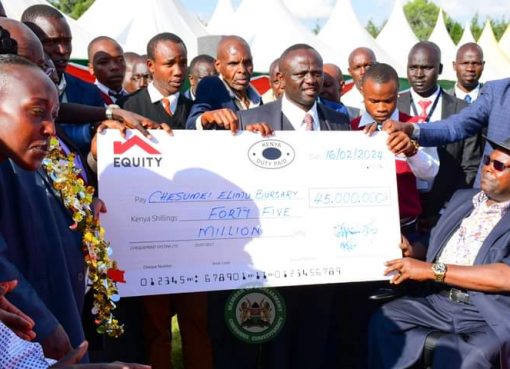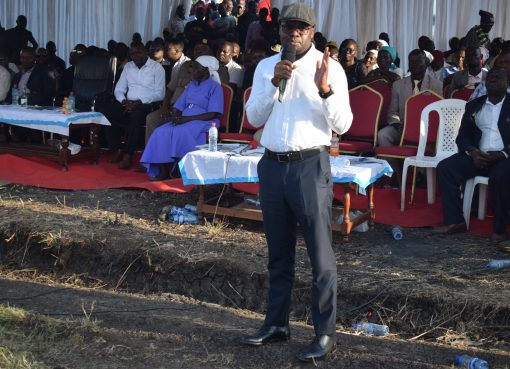World Malaria Day is an international observance commemorated every year on 25 April and recognizes global efforts to control malaria.
This year the World Health Organization (WHO) is calling for revitalized efforts at all levels, from global policy to community action, to accelerate progress towards malaria elimination.
In a statement ahead of the commemoration Saturday, WHO said that in the 1990s world leaders laid the foundation for remarkable progress in global malaria control, including preventing more than 2 billion cases of malaria and nearly 13 million deaths since 2000
To date, WHO has also certified 45 countries and 1 territory as malaria-free, and many countries with a low burden of malaria continue to move steadily towards the goal of elimination. Of the remaining 83 malaria-endemic countries, 25 reported fewer than 10 cases of the disease in 2023.
However, Malaria remains a major public health concern in Kenya, with the country reporting approximately 5.5 million cases in 2023, translating to an incidence rate of 104 cases per 1,000 population.
This year projections show an increase in malaria cases, reaching 2.9352 million, representing a 2.8 percent rise from the 2.8546 million cases forecasted for 2024.
The increase has been attributed to factors like population growth and the ongoing threat of mosquito-borne diseases in endemic area
WHO Director-General Dr. Tedros Adhanom Ghebreyesus said that despite history showing some gains, it has also taught us harsh lessons with the disease resurgence and taking its greatest toll on the most vulnerable when countries divert attention.
“History shows us what is possible: with strong political commitment, sustained investment, multisectoral action and community engagement, malaria can be defeated,” he added in a statement today.
Meanwhile, the expanded use of a new generation of insecticide-treated nets is poised to lower the disease burden, and according to the latest World Malaria Report, these new nets, which have a greater impact against malaria than the standard pyrethroid-only nets, accounted for nearly 80% of all nets delivered in sub-Saharan Africa in 2023, up from 59% the previous year.
Kenya’s Ministry of Health last year planned to distribute 18.3 million Long Lasting Insecticidal Nets (LLINs) in 28 targeted counties aimed at ensuring households in malaria-risk areas have one net for every two household members, ultimately contributing towards reducing the burden of malaria in the country.
WHO, however, has confirmed that the progress against malaria is under threat because, despite significant gains, nearly 600 000 lives were lost to the disease in 2023 alone.
The African Region is hardest hit, shouldering an estimated 95% of the malaria burden each year.
“Progress has been hampered by fragile health systems and rising threats such as drug and insecticide resistance. Many at-risk groups continue to also miss out on the services they need to prevent, detect and treat malaria. Climate change, conflict, poverty and population displacement are compounding these challenges,” WHO says.
WHO recently warned that the 2025 funding cuts could further derail progress in many endemic countries, putting millions of additional lives at risk?
Of the 64 WHO country offices in malaria-endemic countries that took part in a recent WHO stocktake assessment, more than half reported moderate or severe disruptions to malaria services.
World Malaria Day 2025, under the theme, Malaria ends with us: reinvest, reimagine, and reignite, is calling for stepped-up political and financial commitment to protect the hard-won gains against malaria.
To reinvest, WHO has joined partners and civil society in calling on malaria-endemic countries to boost domestic spending, particularly in primary health care, so that all at-risk populations can access the services they need to prevent, detect and treat malaria.
The successful replenishments of the Global Fund and Gavi, the Vaccine Alliance, are also critical to financing malaria programmes and interventions and accelerating progress towards the targets set in the WHO Global Technical Strategy for Malaria 2016-2030.
More countries are making malaria control and elimination a national priority, including through the Yaoundé Declaration, signed in March 2024 by African ministers of health from 11 high-burden countries.
Dr. Daniel Ngamije, Director of the WHO Global Malaria Programme, said ministers committed to strengthening their health systems, stepping up domestic resources, enhancing multisectoral action and ensuring a robust accountability mechanism.
“This is the kind of leadership the world must rally behind,” he said.
According to WHO, reigniting commitment at all levels, from communities and frontline health workers to governments, researchers, private sector innovators and donors, will be critical to curbing, and ultimately ending malaria.
By Wangari Ndirangu





